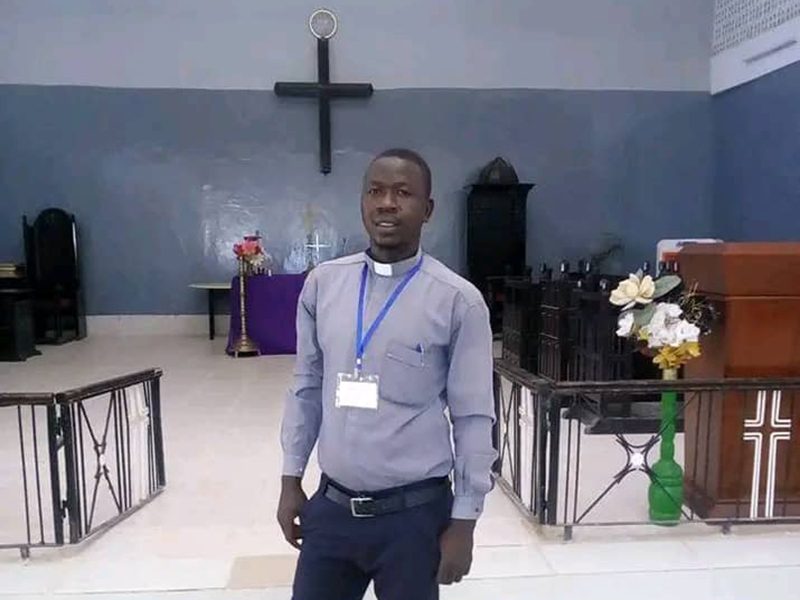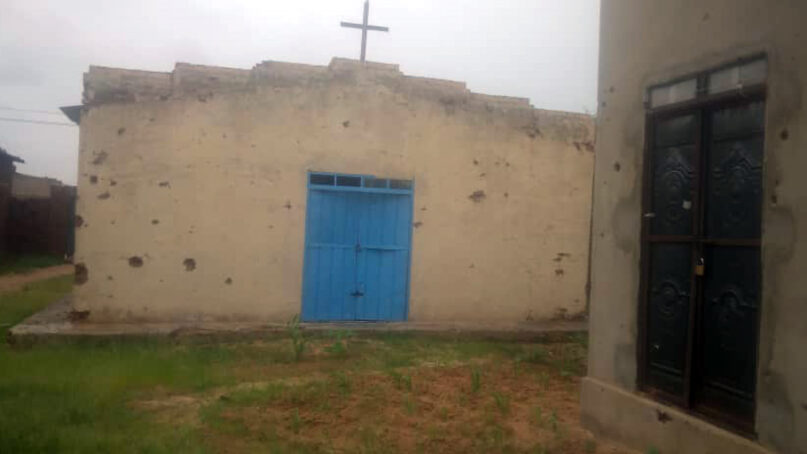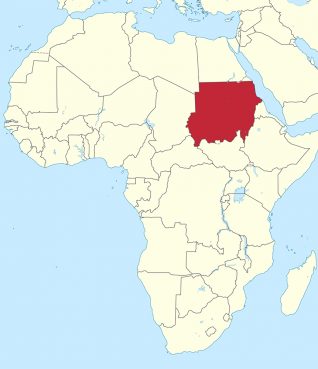
NAIROBI, Kenya (RNS) — In the besieged Sudanese city of El-Fasher, the Rev. Daramali Abudigin is staying on, even as random bombs, stray bullets and hunger kill members of his flock.
The 44-year-old priest has kept St. Mathew, of the Anglican Church of Sudan, open to all Christians, after increased fighting has forced other pastors and priests to flee. Here, people live one day at a time, and if stray bombs and bullets do not kill them, hunger does not spare them, especially children.
In May, the priest lost five church members who were living with him after the armed men randomly shot at the church compound. The deaths nearly moved him to abandon the city. “I didn’t leave the church. In a while, I considered leaving, but I changed my mind. I am still staying with my flock. Whenever we lose a person, it makes me very sad,” said Abudigin, who lives in the city with his wife and three sons.
El-Fasher, the capital of North Darfur, one of five states in the Darfur region, has been under a blockade from the paramilitary Rapid Support Forces since April of last year. The group declared a blockade after local militia declared allegiance to the Sudan Armed Forces.
The fighting in Sudan began in April 2023, four years after the two groups that worked together to overthrow the dictator, Hassan Omar al-Bashir, disagreed on the direction the country should take. The two forces, both largely consisting of Muslims, have battled for control of the country since then.
Beginning in March, the battle shifted to Darfur, the RSF’s base in the west of the country, after the army pushed the paramilitary out of the capital, Khartoum, and other areas. Recently, the RSF has intensified attacks on the city to capture it from the army. The force has carried out ground and aerial assaults, launching missile attacks, and has constantly shelled the city. Its battlewagons have also attempted to storm the city.

St. Mathew Church in El-Fasher, North Darfur, Sudan. (Courtesy photo)
At least 57 people died in the city on Aug. 11 after the militias opened fire on homes and streets.
“The bombs and the bullets strike homes,” Abudigin told Religion News Service in an online interview. “The markets are very dangerous. One can lose their life anywhere and any time.”
The Rev. Luka Jomo, the pastor of a Catholic church in El-Fasher, was struck by a stray bullet when paramilitary militias attacked the city in June. Abudigin, who knew Jomo well, rushed him to the hospital, but too late to save his life. Two young men staying with him were also killed.
Catholic Church sources said they had tried to help Jomo leave, but with RSF militia encircling it, he remained trapped.

Sudan, red, in northeast Africa. Map courtesy of Creative Commons
Abugidin has welcomed any Christian who wants to worship in the city. “There are no other pastors in Darfur in general. I am the only one in El-Fasher, and I usually combine worshippers in one church to save them from random bombings and shootings,” said Abudigin.
Abudigin, who was ordained in 2010, grew up in the Nuba Mountains, a region bordering South Sudan that is protected by another militia, the Sudan People’s Liberation Movement, and has become home to some 700,000 refugees.
El-Fasher has its own displaced persons camps, Abu Shouk and Zamzam. Of the 57 killed on Aug. 11, at least 40 were residents of Abu Shouk. In April, the RSF struck both camps, killing more than 100 people, including 20 children and 10 aid workers.
Apart from stray bullets and bombs, Abudigin said many die from hunger, as people cannot afford what little food there is in the city.
“Many children have malnutrition, and we are going to see many of them dying if they do not get help urgently. There is food in the market, but the people cannot afford it, because they do not have any money now. Again, the food is too expensive,” said the priest.
The church, he said, is not able to help the people because it is also struggling with resources. “As a pastor, I am struggling to cope because what the church sends for upkeep is not enough,” he said. “They used to send me 200,000 Sudanese pounds (USD 330) per month, but now this cannot feed me for two days,” he said.
The United Nations last year declared famine conditions in Zamzam, a camp of displaced persons in the city, but workers for its World Food Program have not been able to get to the city to offer assistance. The militias have also blocked trade and food supply channels, forcing an escalation of food prices.
Abudigin called on the international community and the global Christian community to act quickly to save Sudan from the war, especially El-Fasher.
“Food is urgently needed because hunger is killing people every day. As I am talking to you about hunger, we have lost a child because of it, and another two because of disease, since there are no medicines,” he said.
